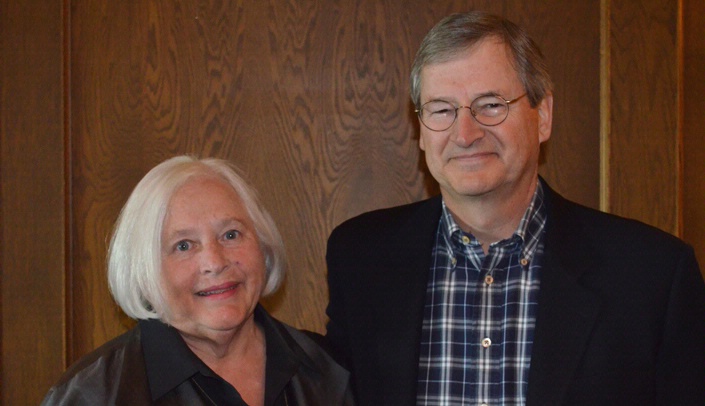For Barbara Weitz, supporting research is a no-brainer.
Her father died of Parkinson’s disease, and her sister died at age 55 from diabetes, a disease she battled for 52 years.
It doesn’t stop there. Her mother and an aunt died of cancer and three cousins succumbed to cystic fibrosis before they reached the age of 10.
Barbara and her husband, Wally, were honored by the Nebraska Coalition for Lifesaving Cures on April 20 at the coalition’s 13th annual Tribute Lunch at Happy Hollow Club.
For the past 32 years, Wally Weitz has successfully run Weitz Investment Management Company. Successful might be an understatement. The firm manages more than $6 billion.
The Weitzes have three children and six grandchildren. They are very aware that the strides made in research today will have implications for generations to come.
At the lunch, the Weitzes voiced their strong support of the stem cell research being done at UNMC and other research centers around the country.
“I grew up believing that everyone believes in science,” said Barbara Weitz, a former social worker. “We need to vote for people in the legislature who support research. We need to be the loudest voices in the room.
“We need to start telling people that we believe in science and not assume that everybody does. We need to tell the person we’re standing next to in line at Starbucks.”
Wally Weitz, a coalition board member, had high praise for Dick Holland, founder of the coalition and a staunch supporter of research and UNMC.
“Dick didn’t have to twist our arms (to provide financial support to the coalition),” Wally said. “Dick is the real hero. He started the whole thing.”
Meanwhile, the beat goes on.
Research using embryonic stem cells (ESC) is racing forward, said David Crouse, Ph.D., president of the coalition and a key faculty member/administrator at UNMC for 35 years before retiring in 2012.
In 2009, only 21 ESC lines were approved for research. Today, 307 ESC lines are approved, and 439 ESC lines have been developed.
In addition, Dr. Crouse said several clinical trials using ESC derived cells are currently ongoing as well as one clinical trial using induced pluripotent stem cells (iPSC).
Breakthroughs in science don’t occur overnight. But, with the support of the Weitzes and others, strides are definitely being made.
Pass it on to that person in line at Starbucks.

Well Deserved recognition. Congrats Barb and Wally!